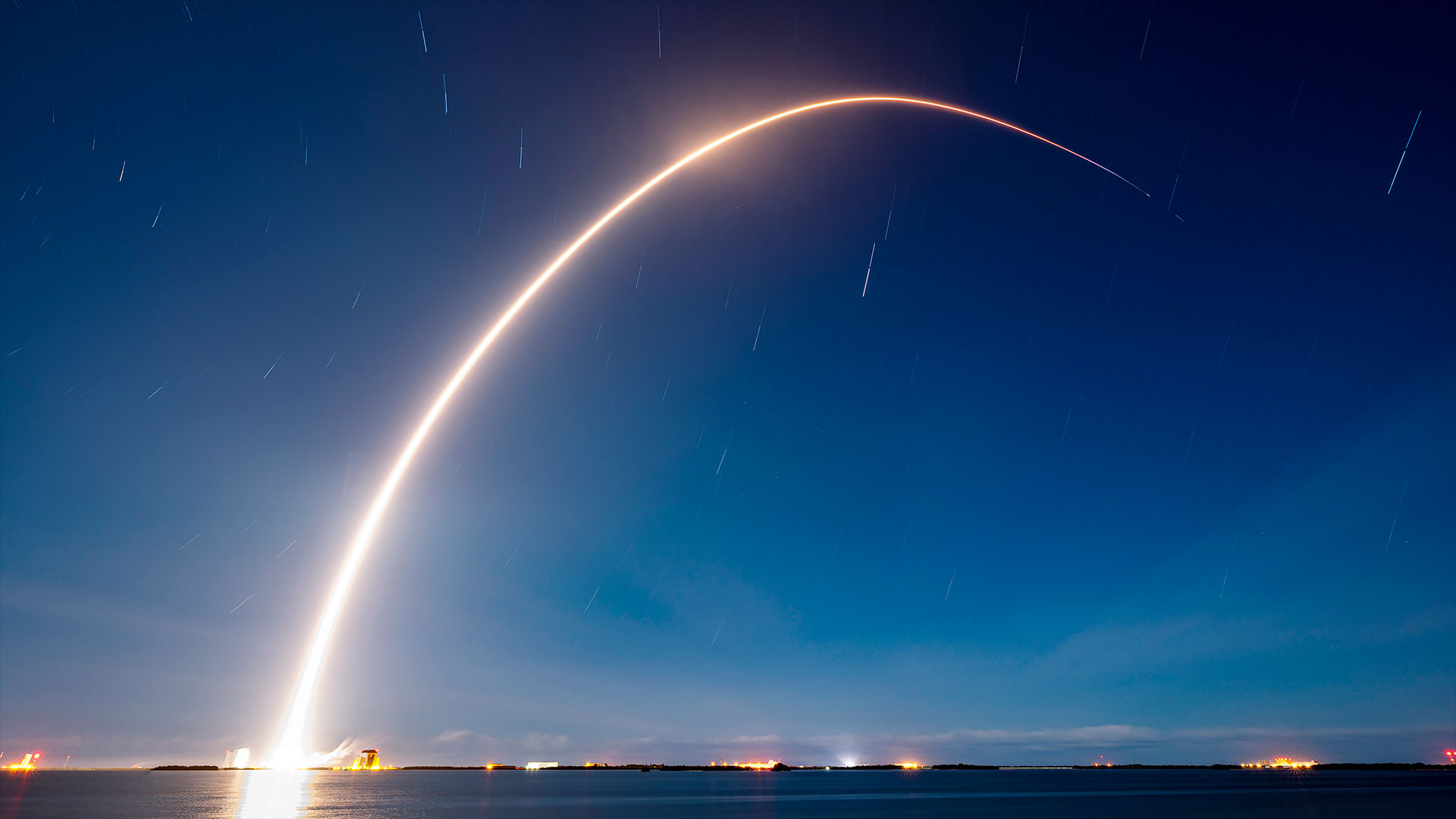This Israeli startup's sci-fi 'headset' will map brain changes in space on private Ax-1 mission
Researchers hope to see how the brain adapts to space travel during the 10-day mission.

A brain 'headset' aims to provide a high-resolution view of neural changes that happen in the brain while space, and it will fly aboard Axiom Space's first crewed launch, Ax-1.
If all goes to plan, the brain experiment, which comes from Israel-based startup Brain.Space, will launch aboard a SpaceX Crew Dragon vehicle on April 6 along with the four private astronauts the Ax-1 mission. The crew, whose flight was booked by Axiom Space, will embark on a 10-day excursion which will include eight days of living and working aboard the International Space Station.
The headset and associated hardware will be tested aboard the ISS, Brain.Space said on their website. The experiment will also return to Earth with the Ax-1 crew.
Photos: The Human Body in Space: 6 Weird Facts
The company says that their examination of the brain will be unique, as, according to them, to-date, "there is currently no high-quality longitudinal data regarding the neural changes in prolonged space missions," their website states.
By obtaining and studying this information, the company aims to gain more insight into how the brain adapts in space, which is an environment full of challenges like radiation, microgravity and isolation. Learning about the "day-to-day plastic changes" of the brain, the company states on its website. The company terms that these adaptations, could help future spaceflyers get more comfortable in orbit.
Studies of neurons, or nervous system cells that include brain cells, have been performed in space before. But, on its website, Brain.Space says that these studies were performed using gel-based systems that assess electrical activity at low resolution, known as EEGs (or electroencephalogram.)
Breaking space news, the latest updates on rocket launches, skywatching events and more!
The experiments, the company noted, "were complex to set up in microgravity and only focused on simple brain activity measurements." Their EEG brain headset, Brain.Space said, will simplify the setup and give far more detail as to how the brain behaves.
The experimentation with this headset will monitor brain activity, along with how the brain assesses and uses knowledge in space, also called cognitive performance. Besides forming adaptations for future space flyers, the headset should provide some metrics to assess the health of brains in space, which may flow to more studies in the future.
The researchers aim to collect 15-minute EEG recordings twice a day across eight days. Videos will flow to the company in Tel Aviv, Israel for troubleshooting and assistance, and the data will then be analyzed at both the company and its research partner, Ben-Gurion University in Beersheba, Israel.
The tasks to be performed with the headset include looking at the "resting state" of the brain in space, and looking at the brain while the research subject looks at a "visual oddball" (a waveform). The startup says they hope to be able to use this information to help individuals on Earth with brain disorders, such as sleep problems or schizophrenia.
It is unclear how many crew members will participate in the experiment, which is part of the larger set of Ramon Foundation experiments going to space with crewmember Eytan Stibbe. (Brain.Space says all of the crew has been trained to operate the headset.)
Stibbe was a long-time friend of Israeli astronaut Ilan Ramon, who died aboard space shuttle Columbia in 2003; Stibbe co-created the foundation in part to honor Ramon's legacy. Stibbe will be the second Israeli astronaut to reach space, after Ramon.
Follow Elizabeth Howell on Twitter @howellspace. Follow us on Twitter @Spacedotcom or Facebook.

Elizabeth Howell (she/her), Ph.D., was a staff writer in the spaceflight channel between 2022 and 2024 specializing in Canadian space news. She was contributing writer for Space.com for 10 years from 2012 to 2024. Elizabeth's reporting includes multiple exclusives with the White House, leading world coverage about a lost-and-found space tomato on the International Space Station, witnessing five human spaceflight launches on two continents, flying parabolic, working inside a spacesuit, and participating in a simulated Mars mission. Her latest book, "Why Am I Taller?" (ECW Press, 2022) is co-written with astronaut Dave Williams.
